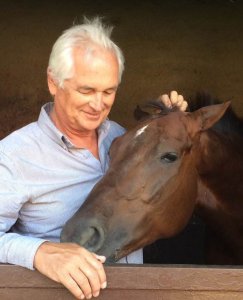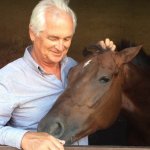
Fedhealth, a South African medical aid scheme, and one of their members, my friend Walter Pike, have been battling out a fight centered around funding an experimental treatment. As you might imagine, Walter Pike feels that Fedhealth should pay for his treatment, and Fedhealth thinks they should not.
The case has brought some necessary attention to the way that medical schemes assess and fund treatments. As expected, the high emotion of the case sometimes sways from the facts, and some things need to be clarified.
First, let’s recap the case
- Walter is 60 years old, a member of the Fedhealth Maxima Plus plan, and has prostate cancer that is not responding to treatment.
- In brief, there are no available treatment options to Walter. At best, he has to resign himself to chemotherapy, which might prolong his life by approximately 6 months. He has been given 2-3 years to live.
- However, there is an experimental treatment for his form of cancer, called Lu-177 that has gotten phenomenal results around the world. It is not approved or registered anywhere, is still in clinical trials, but has only gotten overall very positive results. The treatment costs about R60k a pop (four are needed), and is administered by a team operating from Steve Biko Academic Hospital.
- Walter has received one treatment (as yet unpaid) and this has already registered a 35% reduction in his cancer marker. He is optimistic that with the recommended 4 treatments, he might go into remission.
- His plan allows for a R500k oncology benefit, and a R156k specialised medicine benefit (which Lu-177 would fall under).
Fedhealth has refused to fund the treatment
We have seen the correspondence, and although it is full of convoluted statements from Fedhealth, and their reasons for not funding make it seem as if they are throwing darts and hoping something sticks, at the end of the day Fedhealth’s decision can be summarised to the following:
- The treatment is not registered by the Medicines Control Council (MCC)
- The treatment is experimental and its efficacy is not proven
- The treatment is unaffordable
Let’s tackle each of these, one by one.
The treatment is not registered.
This is a standard clause for medical schemes in their rules and regulations, and at first glance it seems reasonable. By limiting (but not guaranteeing) funding to registered medicines/treatments only, schemes can, at the very least, limit their exposure.
But, because of (an acknowledged) backlog at the MCC and government’s delay for a solution, it can take up to five years to register a medicine that has already gone through all clinical trials. With the fast moving pace of medicine, delaying funding for a medicine by up to five years means that some South African medical scheme members might never have the best medicine available to them. In the worst case, they will die before the treatment that could save their lives is registered.
To be fair, this is not the actual problem in Walter’s case, since his treatment is not yet out of clinical trials, and cannot therefore be considered for registration.
But it could be a problem for you in the future, so just keep it in mind.
The treatment is experimental
This is related to above, but addresses the “backlog” problem. As explained above, some non-registered medicine might no longer be experimental. But Walter’s is.
A medicine that is in clinical trials and that has repeatedly achieved phenomenal results, is still experimental until at least Phase III (and final) of the clinical trials is finished. Lu-177 has not entered a Phase III trial anywhere in the world, or at least no Phase III trial results have been reported.
The treatment is unaffordable and or is not cost-effective
This is difficult (for me) to define, and support or argue against. I guess that the cost considered is the cost vs other available options. Since Walter has no other options, save for some measures such as chemo that would act as life-extending only, it seems impossible to determine off-hand if the treatment is or is not affordable/cost-effective. It goes without saying that it is expensive, but I will discuss the actual costs a bit later.
Schemes are Non- Profits
At this point it is important to remind ourselves that medical schemes are non-profits. They are not there to make money. They are also, however, not there to lose money. The schemes are in fact owned by the members, and the scheme has a duty to all members to ensure that best practice are followed.
In other words, it helps nobody, really, if the schemes fund any treatment that is asked for, without giving any due consideration to authorisation because undoubtedly the scheme will either have to increase premiums exorbitantly, or (and?) go out of business. This is not the end goal.
So what should Fedhealth do?
Given the above, it would seem clear that Fedhealth is in fact correct to refuse the treatment. But that might be the wrong choice. Consider this:
- Walter’s monthly premium is hefty, and his plan has a direct, defined benefit for specialised medicine.
- Walter is in an extremely unique position in that he has already received part of the treatment, and it has proven itself very effective for him. There is a lot of well-substantiated hope that given this result he will go into remission should he receive the full four doses.
- Walter has no other treatment options. He is not choosing the most expensive one, or the most experimental one, or the one with the least chance of working. He is choosing the only option available to him.
- Walter hasn’t really discussed this in any comments I have read, but I assume that he accepts the benefit cap of R156,000 that Fedhealth would cover, and understands that he would have to pay the balance. I speak for him here, but I assume he is not saying that Fedhealth should cover all his costs, just the costs they promised to cover when he signed up.
- And let’s talk hard, clinical, cruel, cash. By spending the R156,000 Fedhealth would not have to pay for a five month round of chemo. They will most likely not need to pay for palliative/hospice care. They will prolong Walter’s life, so that he can continue to pay them over R50k per year, maybe for the next 30 years.
- To be clear: Fedhealth has already allocated R156,000 for specialised medicine for Walter They just refuse to hand it over because the treatment is experimental and its efficacy is, according to them “not proven”. They are ignoring the fact that it a) is the only hope that Walter has and that b) it IS proven, not just for the hundreds of people who have taken part in the clinical studies thus far, but for Walter himself.
It’s a bit of a toss up. Fedhealth is following its scheme rules, under the guise of protecting the scheme for all its members. But it is also seems to be relying too much on the fine print, and not too much on the facts before them.
I would be interested to hear what you think. What am I missing from this argument? What do you think Fedhealth should do? How confident are you that your plan is the best one for you, having read this? If you wish, you can discuss in the forum, or email me [email protected].
UPDATE: Fedhealth have provided a lengthy response to this post, which I posted in its entirety on the Forum (link above), which is open to further discussion.
Remember, the Medical Aid Bible helps you compare the benefits of all 265 open medical aid plans, for free and with no registrations or signups. You owe it to yourself and your family to double check that your plan is the right one for you.
Medical Aid Bible helps South Africans choose the best medical aid plan for their needs. Quickly view the benefits on any open plan, and compare any two plans with a simple click.
.







